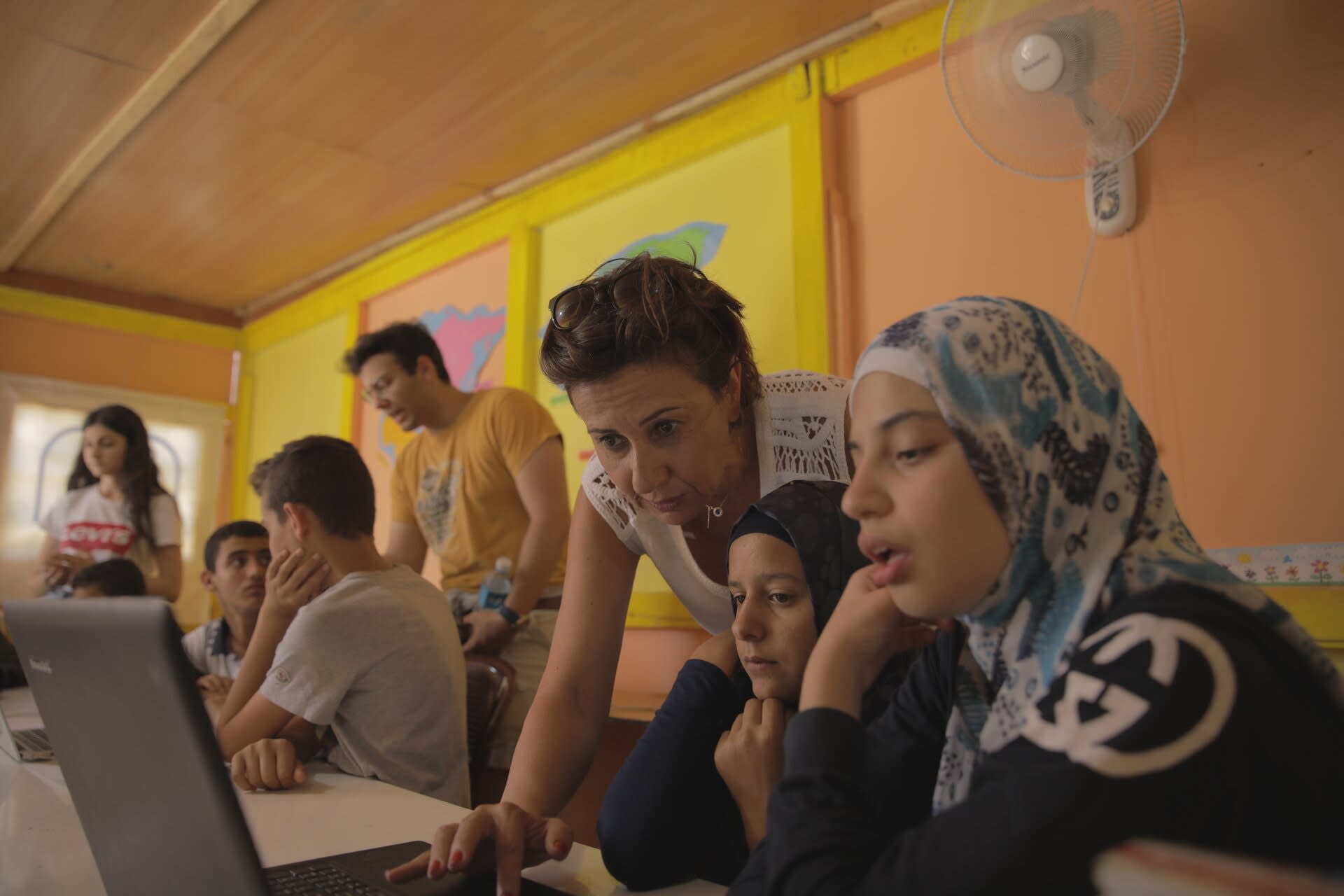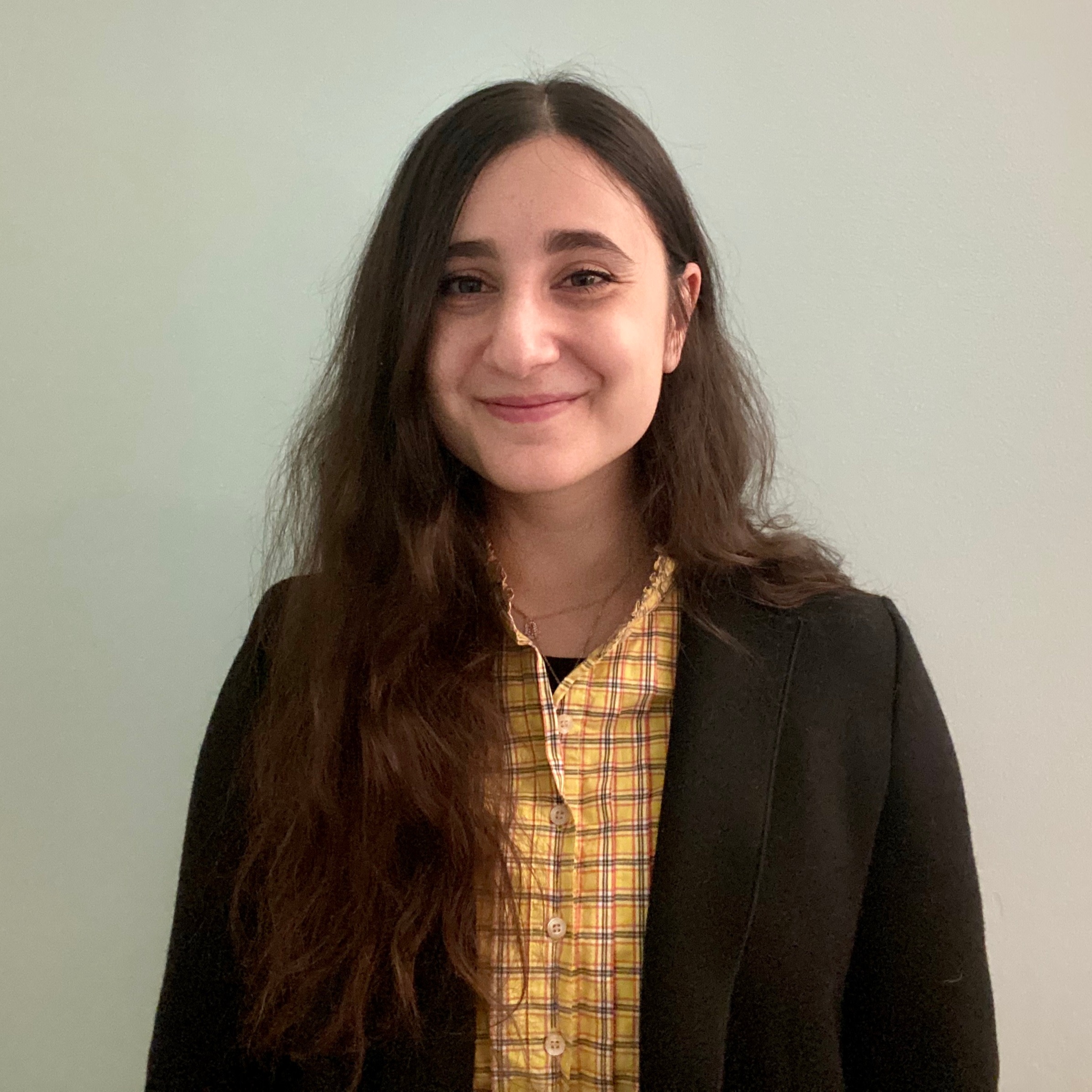
Photo courtesy of Tamara Abdul Hadi
Lebanese Alternative Learning (LAL) works to provide digital learning solutions to girls living in vulnerable communities in Lebanon.
Since the August 4, 2020 explosion in Beirut’s port, Malala Fund Education Champions in Lebanon have been working to help students continue learning in the aftermath of the crisis. The blast — triggered by the detonation of a large stockpile of ammonium nitrate — killed 200 people and forced some 300,000 from their homes, including 100,000 children. Lebanese citizens are still feeling its aftershocks.
“Around 180 schools are completely destroyed,” says Malala Fund Education Champion Nayla Zreik Fahed. With the damage impacting more than 85,000 students — and with millions more already affected by COVID-19 school closures — the majority of students in Lebanon have shifted to remote learning in the last year. But students’ ability to access distance learning resources in Lebanon is complicated by the country’s rapidly changing circumstances, including a severe financial crisis which has left over 50% of the population living below the poverty line. “If you live in an underserved community or remote area, you probably do not have internet access, you have electricity cuts and you do not have devices, so distance learning is very hard,” explains Nayla, whose organisation Lebanese Alternative Learning (LAL) works to provide digital learning solutions to girls living in vulnerable communities in Lebanon. “Since the pandemic, the economic crisis and the Beirut blast, a lot of students had an incomplete education — both girls and boys.”
Under Nayla’s leadership, LAL has overcome significant challenges to help students learn amid Lebanon’s compounded crises. After recovering from the port explosion — which damaged the organisation’s Beirut offices and many staff members’ homes — LAL turned its attention towards a new initiative aimed at helping other education nonprofits meet the increased demand for digital education in Lebanon. “The idea was that NGOs have different needs, challenges and beneficiaries,” explains Nayla. “Whether they are in Beirut, in the Bekaa or in the south, students speak different languages, are at different levels and have different gaps in learning.”
To account for students' disparate needs, LAL works with other education NGOs to install a learning platform onto their web servers that has standard LAL content but also allows for each teacher to create and upload their own learning activities. This way, nonprofits in Lebanon are able to customise their remedial support programmes with students' languages, levels and needs in mind.
Among LAL’s partners in this initiative was Basmeh & Zeitooneh (B&Z), an organisation that works with Syrian refugees in Lebanon founded by Malala Fund Education Champion Fadi Hallisso. After installing their platform onto B&Z’s server, LAL ran workshops with 40 of the organisation’s teachers, coaching them on how to devise internet-free, interactive resources for students with limited access to technology. “We worked from these questions: How do we conceive a course? What are the related digital activities? How can we motivate the students while making them think?” The collaboration had a happy result. “They produced an amazing program,” Nayla says of the participating teachers. “They digitized a whole school year.” These digital programmes — accessed on tablets that B&Z distributed — ensured every single student the organisation serves could continue their education from home.
For Nayla, successes like these emphasise a central point: The goal of equal access to distance learning for students in Lebanon can only be realised through partnership. “Collaboration between nonprofits is really essential,” she says. “We are much more efficient and stronger if we work together.” To this point, LAL’s recent partnership with the Center for Educational Research and Development (CERD) saw its user base for Tabshoura — LAL’s internet- and electricity-free digital learning platform — jump from 7,000 to 40,000 users during the pandemic.
Apart from pooling resources, Nayla stresses that partnerships between regional nonprofits are key to eliminating overlap between programmes. “A lot of NGOs asked us to help them digitize some of their programs and we saw so much duplication,” Nayla explains. “So many programs are the same. They would benefit and be richer if we align them together and take part from this and part from that and have a cohesive, exhaustive program.” In recognition of this fact, LAL is planning a consortium on quality digital education with leading NGOs like the Ana Aqra Association, Basmeh & Zeitooneh, the International Rescue Committee and War Child Holland. “The idea is to put our resources together to create one digital program that is validated by all,” Nayla says. “The objective is helping other NGOs in the field — smaller NGOs who do not have support — to access this support programme offline and for free.”
Next, Nayla is working on realising a long-held dream of LAL: developing a Tabshoura app that students can access for free and offline across a range of technological devices. But LAL cannot accomplish this alone. “Before the app we had Tabshoura in a Box. It was working perfectly in schools, but we cannot give a box per child,” Nayla shares. “We always fantasized about an app, but building an app is expensive.” This year, support from the German Federal Ministry for Economic Cooperation and Development (BMZ) enabled LAL to hire two companies to realise the project: one to develop the app and another to design its visual identity.
In parallel, LAL is using a Malala Fund grant to build a platform for educators that will help teachers in Lebanon introduce blended learning to their classrooms. “The platform will include learning materials teachers can access using WhatsApp and guidance on how to teach when students do not have access to the internet,” Nayla explains. “We will encourage them to use the direct environment of the child — the flowers they can find on the street to learn biology, the kitchen to learn chemistry, the home to learn dimension and mass.”
Once launched, the Tabshoura app and educators’ platform will mark important milestones in Nayla’s efforts to make digital education free and accessible to all students in Lebanon. With no end in sight to the country’s crises, her work is more important than ever.
